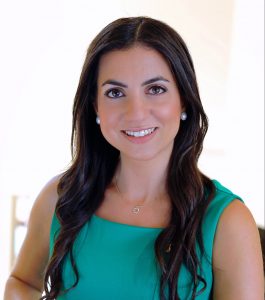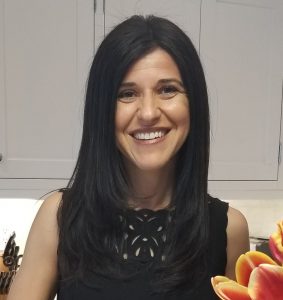March 23, 2020 by Amy Kimberlain
More From Dietitians: ‘Plant-Based’ vs. ‘Vegan’ Diets, Intermittent Fasting, and Cooking with Olive Oil

What’s the difference between “plant-based” and “vegan” diets? Is “intermittent fasting” healthy? And have you heard about the precaution you should take when cooking with olive oil?
Baptist Health registered dietitians Amy Kimberlain and Lucette Talamas provide answers to topical nutrition-related questions in the second part of our recap of their recent Facebook Live session.
Is “plant-based” and “vegan” the same thing? And for those who may not really know what they mean, can you tell us about them?
Ms. Talamas:  “Does plant-based mean that you’re vegan? That’s a misconception. The term plant-based is really an umbrella term that’s used to cover a spectrum of diets. The ultimate end of one side of the spectrum is vegan. But the ultimate end of the other side of the spectrum can be minimal animal protein. So what we find in between is whatever works for that person. We’re here to encourage more vegetables, especially non-starchy vegetables. So it doesn’t mean you’re a vegetarian if you’re eating more vegetables. And it doesn’t mean you have to call yourself a vegetarian if you have rice and beans for a lunch one day, which is a completely vegan meal. You don’t have to stick to these labels. When you’re plant-based, that means you’re choosing more veggies, specifically non-starchy vegetable protein, and adding more of the plant-based protein.”
“Does plant-based mean that you’re vegan? That’s a misconception. The term plant-based is really an umbrella term that’s used to cover a spectrum of diets. The ultimate end of one side of the spectrum is vegan. But the ultimate end of the other side of the spectrum can be minimal animal protein. So what we find in between is whatever works for that person. We’re here to encourage more vegetables, especially non-starchy vegetables. So it doesn’t mean you’re a vegetarian if you’re eating more vegetables. And it doesn’t mean you have to call yourself a vegetarian if you have rice and beans for a lunch one day, which is a completely vegan meal. You don’t have to stick to these labels. When you’re plant-based, that means you’re choosing more veggies, specifically non-starchy vegetable protein, and adding more of the plant-based protein.”
Ms. Kimberlain:  “(Plant-based) represents the bigger picture for everybody to call attention back to protein. Protein is just a portion of the plate and … it’s not the main event. We need to help people understand and see how much they should be eating. Half of the plate should be non-starchy vegetables. In case people aren’t aware of what those are — it’s spinach, carrots, tomatoes, cucumbers mushrooms. Again, it’s all of the ones that aren’t like a load of carbohydrates. On the other side, if it was a grain or a source of a starchy vegetable, it would be something like a sweet potato or a regular potato. All of those are different forms, but that’s just a quarter of the plate. Again, it comes back to portions. Protein is just a quarter of the plate, whether it’s a plant source or animal source.”
“(Plant-based) represents the bigger picture for everybody to call attention back to protein. Protein is just a portion of the plate and … it’s not the main event. We need to help people understand and see how much they should be eating. Half of the plate should be non-starchy vegetables. In case people aren’t aware of what those are — it’s spinach, carrots, tomatoes, cucumbers mushrooms. Again, it’s all of the ones that aren’t like a load of carbohydrates. On the other side, if it was a grain or a source of a starchy vegetable, it would be something like a sweet potato or a regular potato. All of those are different forms, but that’s just a quarter of the plate. Again, it comes back to portions. Protein is just a quarter of the plate, whether it’s a plant source or animal source.”
Are you not supposed to cook with olive oil based on new research?
Ms. Talamas:
“There are some studies to prove almost anything. We’ve talked about it with eggs and now with olive oil. There’s a study that shows you should cook with olive oil and a study that says do not to cook with olive oil. The truth is every oil has a ‘smoking point’ — this is another property of oils. You may have noticed if you put some oil on a pan and you get a little distracted, and then you see it starts to smoke. So some oils reach that smoking point faster than others. So from the research I’ve done, you actually can cook with it if you’re very mindful of not overheating it because olive oil is delicate, and it has a lower smoking point than most other oils.”
Do you believe in ‘intermittent fasting’?
Ms. Kimberlain:
“It comes back to the context of how people are eating and what can they do in the long term. (With intermittent fasting), you’re going literally for a period of time and there are different methods to (fasting). So again, there are different ways — are you fasting from the morning to noon the next day? It comes back to the context of: Is it really, truly viable for you to be able to go that long without eating? And then look at the whole day’s worth. Are you then eating in a certain frame of time and are you overeating — because you are starving during the time you’re not eating? And are you still getting the sufficient nutrients that you need?”
Is it OK to take Ensure (meal supplement) as a breakfast?
Ms. Talamas:
“Ensure is a supplement (meal replacement drink or shake) that comes in a bottle and it has calories, protein, vitamins and minerals. We usually recommend these dietary supplements for elderly persons. For them, it may be more difficult to get nutrition and they may be going through a lot of medical issues. And they’re at an advanced age. So that’s the time when we medically see a purpose for supplements like Ensure. But we always want to encourage you to have food if you’re able to have food (instead of supplements).
Can you suggest easy gluten-free meals for people with celiac disease?
Ms. Kimberlain:
“There are some restaurants actually that are really keyed in and honed in on making sure there are gluten-free options, like rice, like quinoa, etc., but I think the thing about celiac disease to be aware about is contamination. So you would want a restaurant to verify that they are not having other products that could have gluten, which is what you shouldn’t have if you are diagnosed with celiac disease. You have to make sure there is no cross-contamination affecting the food that you would be eating. There are restaurants and cafeterias that truly have gluten-free options and they’re popping up more and more.”
top stories












There are no comments